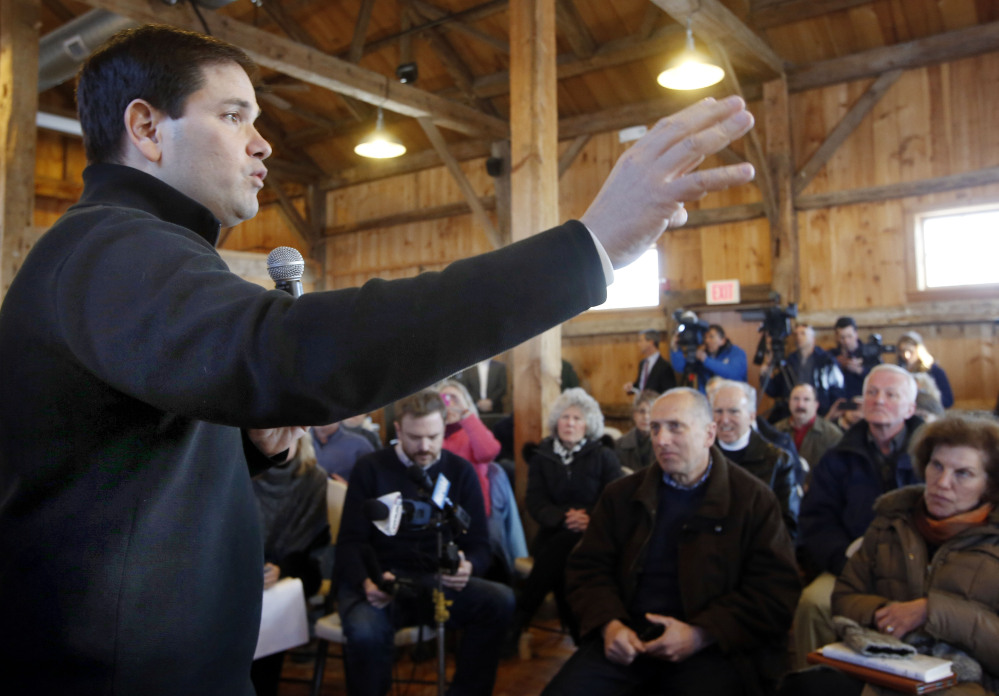HOLLIS, N.H. — Back in New Hampshire for the first time since the midterm elections, it didn’t take long for Sen. Marco Rubio to get a question about immigration.
Speaking to a group of people in a wooden barn in the southern part of the state, the Florida Republican — still debating whether to run for president or seek re-election to the Senate in 2016 — was asked about his past support for immigration legislation that includes a path to citizenship for the millions of immigrants living in the country illegally. Rubio’s aides said the crowd was “more than 100.”
“When I first heard you, I liked you a lot — and then you lost me,” a questioner asked Rubio, to some applause from the crowd. “But I’m back, here to give you another chance. My question for you is, ‘Can you commit if elected president to send home every single person that’s violated our country’s laws and is here illegally?'”
In reply, Rubio didn’t hesitate.
“I don’t think anyone can commit that to you,” Rubio said. “You have 12 million human beings in America, most of whom we don’t even know who they are and some of them whom our country’s not going to tolerate rounding up and sending back. That’s not a realistic proposal.”
The direct question at such a small event is typical of New Hampshire, home of the nation’s first presidential primary. Many voters relish their chance to interact with potential candidates for president, and the question is one that Rubio is likely to face often as he considers getting into the 2016 race.
Rubio was one of eight senators to sponsor the comprehensive immigration reform legislation that passed the Senate in 2013, but that was later blocked in the House by lawmakers aligned with the tea party.
Not everyone in the crowd appeared to like Rubio’s answer, including the man who asked the question. While he declined to answer questions afterward, several others at the town hall said they appreciated Rubio’s directness and his ability to explain his position.
Rubio told the town hall he supports securing the border, improving the system for tracking people who overstay work visas, implementing a verification system for employers and reforming the country’s legal immigration system.
“There’s not one solution that fits all,” said Steve Negron, of Nashua. “You can’t have this broad brush and get rid of those people that are truly trying to do the right thing.”
Send questions/comments to the editors.



Comments are no longer available on this story